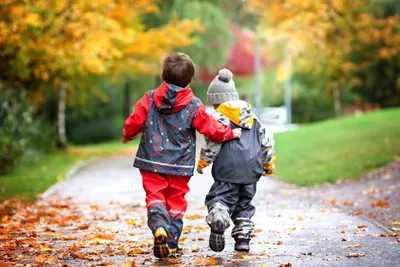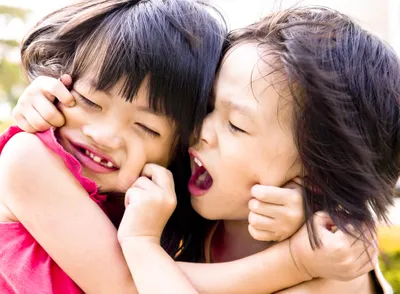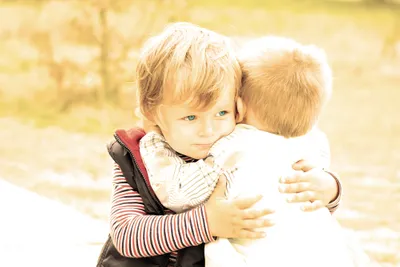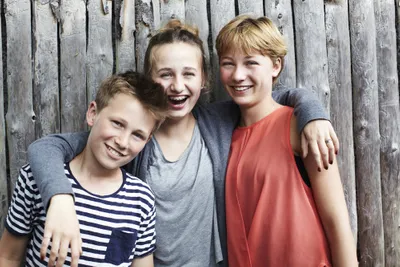Sibling rivalry stems back to ancient biblical times with the story of Cain and Abel—two brothers in competition with each other for their father’s approval. Their story is rife with emotion, love, hate, and jealousy. It ultimately ends with pain and tragedy. The story of Cain and Abel highlights some of the unique aspects that set sibling relationships apart from all others. It’s a bond forged by both biology and circumstance. Siblings can be friend or foe, confidant or competitor. Siblings share the same biological genes and often the same environment growing up.
Let’s have a closer look at what makes sibling relationships so unique and good for us…
1. Having a Sibling is Good for You
Have you ever hear of the saying “blood is thicker than water”? This popular proverb implies that family relationships are more important than friendships and should be treated as such. Having a brother or sister can be good for your health. Research has shown that people who grow up with siblings are more altruistic.
Having a sibling can improve your mental health, make you happier and can help you live longer. One study published in the journal of PLoS Medicine found that people without strong family bonds died an average of 7.5-years earlier than those with solid connections.
2. Siblings are the Longest Relationships in Life
Siblings are the longest relationship you will experience in your lifetime next to your parents, and in many cases, they are the longest. You share the early years of your development and the intimacy of your own parent-child relationship with your sisters and brothers to varying degrees. You share your early vulnerabilities, fears, triumphs, and learning with them.
Siblings also know your weaknesses and strengths and vice versa. They’ve seen you sad and seen you happy—shared good times and bad. You’ve both seen each other at your worst and at your best. You’ve witnessed each other’s development into mature adults. No other relationship, not even that between you and your spouse, will last as long. The relationship we have with our brother or sister tends to be the longest we will ever experience in our lives.
3. Empathy Grows with Siblings
Children growing up with brothers or sisters tend to develop more empathy for others. They must learn early to share things—such as toys, parental time and affection, food, clothing, etc. Children growing up with siblings learn to control their emotions. Young children often exhibit the full spectrum of emotions from anger and jealousy to love and affection.
Siblings no matter their age all tend to learn from one another. Older siblings tend to take on a helper role, which can promote the development of self-esteem and social responsibility. Younger siblings often try to emulate their older brothers or sisters, which keeps them motivated to try new things.
4. Sibling Rivalry
Sibling rivalry can start even before the birth of the second child. It is a state in which one or more children are competing with or showing animosity for their sibling. Siblings generally spend more time together with each other than with their parents when they’re growing up. During this time they are fighting and competing with each other for time, attention, toys, food and a host of other things.
Research conducted by Judy Dunn revealed that children as young as one year old are extremely sensitive to how their parents are treating them as compared to their siblings. This can have profound effects in sibling conflict for years to come.
5. Birth Order
According to psychologist Dr. Kevin Leman, personality differences amongst siblings can be attributed to their birth order and parents reactions. New parents tend to experiment using trial and error when raising their first child. They are often strict and neurotic. This is why first born children tend to exhibit perfectionist tendencies as they strive to meet their parent’s high expectations.
On the other hand, second born children are frequently raised in a more relaxed style by parents who are more confident with experience. These children may receive less attention from parents than their older sibling as there are now two of them. This results in the second child becoming a people pleaser and less of a perfectionist than their older sibling.
6. What Parents Can Do to Decrease Sibling Rivalry?
Parents should try to include the older sibling in the pregnancy before the birth. Show them ultrasound pictures of the new baby growing in mommy’s tummy, let them pat the baby beneath the bulge and feel it moving. Revisit the older child’s babyhood.
All this should be done while trying to make the older sibling feel important and part of the event. You can give the older sibling the job like mommy’s helper. Another vital step is to make sure you spend “special” time with the older sibling on a regular basis. You must also remember to set limits when needed, stay positive and maintain a sense of humor.
7. Adult Sibling Rivalry
Research has shown that for 33-percent of us, conflict sown early between siblings endures for a lifetime. For these adults, contact with their siblings inevitably results in their buttons being pushed and old childhood roles being recast.
Research conducted by Judy Dunn, who pioneered sibling studies in the U.K. and U.S., concluded that parental favoritism or inaction monitoring sibling interactions can be instrumental in causing sibling rivalry to develop in their children. These patterns of interaction are ingrained from childhood to such an extent that adult children cannot adequately define where the animosity started or what sets it off.
8. Fostering Adult Sibling Relationships
Sibling relationships can change drastically over time. Major life events at all stages can bring them closer together or split them further apart. Death, illness, abuse, or homelessness are some examples of shared events, which can drastically affect the sibling relationship.
Marriage can also cause a rift. In a study featured in Psychology Today, 66-percent of people interviewed stated that when their sibling married, a wedge was driven into their relationship. Conflict with the new brother or sister-in-law was to blame. The good news is that despite everything, more than 80-percent of siblings over the age of 60-years old enjoy a close relationship with each other.










